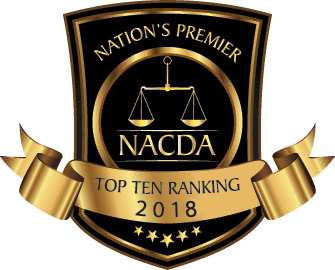The Enforceability of Illinois Emergency Executive Orders
Due to the threat of COVID-19, Governor Pritzker declared that a disaster existed in all 102 Illinois Counties on March 9, 2020. He followed this with a series of executive orders, including Executive Order 2020-10, commonly known as the “stay at home” order which was issued on March 20, 2020 and set to expire on April 7, 2020. The order claims that its authority derives from the Illinois Emergency Management Act, 20 ILCS 3305 and is consistent with powers in the public health laws. This order mandated Illinois citizens to stay at home except as allowed in the executive order. It mandates social distancing of at least 6 feet from other individuals. It ordered the closure of all “non-essential” businesses and prohibited gatherings of more than ten individuals. All non-essential travel was also prohibited. The expressed intent of the order was “to ensure that the maximum number of people self-isolate in their places of residence to the maximum extent feasible.” On April 1, 2020 Governor Pritzker issued a second order, 2020-18 which extended the “stay-at-home” order through April 30, 2020. Finally, on April 30, 2020 the Governor issued a thirdexecutive order, 2020-32, which extends the “stay-at-home” order indefinitely and makes some slight modifications with regard to requiring individuals to wear face coverings in public places.
What Our Politicians Have Said
During a press conference, Governor Pritzker has stated, “The obvious answer to this, frankly is that the Governor has the authority to issue a disaster proclamation and put into place executive orders that are all about saving lives.” He claimed that these orders are enforceable and law enforcement has the ability to enforce them. After Judge McHaney of Clay County entered a temporary restraining order, stating that Governor Pritzker’s executive orders shredded the constitution, Governor Pritzker claimed that the lawsuit was insulting, reckless, and a danger to millions of people.
Chicago Mayor, Lori Lightfoot claimed that the judge’s ruling was troubling and wrong and that the city of Chicago would enforce the executive orders. “We will shut you down, we will cite you, and if we have to, we will arrest you… we will take you to jail, period.“
Legal Analysis
This article is a legal analysis of the enforceability of the Illinois Emergency Executive orders. These orders, on their face, touch upon fundamental liberties such as the freedom to assemble, freedom to worship, freedom to travel, rights to work, decisions which affect an individual’s health. Our State Constitution acknowledges that “all men are by nature free and independent and have certain inherent and inalienable rights.” That these rights do not come from the government, but that government derives their power from the consent of the governed. (Art. I, Sect.1 Illinois Constitution).
Your Rights
In protecting these rights, it is necessary that every person, have due process or their day court, “No person shall be deprived of life, liberty or property without due process of law nor be denied the equal protection of the laws.” (Art. I, Sect. 2). Certain rights are considered fundamental and are expressly enumerated: Religious Freedom, Right to Assemble and Petition, Right to Remedy and Justice, the Fundamental Principles of Liberty and Individual Responsibilities. (Art. I, Sects. 3, 5, 12, 23). These enumeration of rights do not diminish the individual rights retained by our citizens. (Art. I, Sect. 24.)
Limits to the Governor’s Power Within the Emergency Management Act
To put into our context, Governor Pritzker has issued executive orders which impair a number of fundamental rights. It is allegedly done under authority given by 20 ILCS 3305. This statute gives broad powers to coordinate with other agencies, promulgate rules and requirements, to cooperate with the federal government, make amend and rescind orders and rules, “within the limits of the authority conferred upon the governor.” 20 ILCS 3305/6 (c)1.
The natural question is, what are these limits? 20 ILCS 3305/3 places an expressed limitation against affecting the jurisdiction or responsibilities of police forces. 20 ILCS 3305/18 states that emergency services and disaster agencies established under the act shall execute and enforce the orders, rules and regulations as may be made by the Governor. However, it does not say the citizens or businesses of our State are under the same obligation.
The limitations to the Governor’s authority is also explicitly limited to 30 days in 20 ILCS 3305/7, “the Governor shall have and may exercise for a period not to exceed 30 days the following emergency powers…” What follows is a list of 14 separate powers, including the right to take private property or lesser specified interest in private property only upon the undertaking by the State to pay just compensation. Arguably, the “temporary” closing of a restaurant, theatre, or barber shop can only be done if the State is willing to pay the owner. If the fair market value cannot be determined, a petition must be filed by the State in the circuit court of the county where the property is taken. 20 ILCS 3305/7 (4).
With regard to the power to regulate and close certain businesses, the Governor is given the right to suspend or limit the sale, dispensing, or transportation of alcoholic beverages, firearms, explosives, and combustibles. 20 ILCS 3305/7(9). There is not given any general power to isolate or quarantine. There is not given any power to declare who is and who isn’t essential. There is no power to close or regulate “non-essential” businesses or to otherwise affect the fundamental liberties of citizens without due process of law.
Limits to the Governor’s Power from the Illinois Department of Health Act
The powers to isolate and quarantine are found in the Illinois Department of Health Act, 20 ILCS 2305. This act specifically states that the State Department of Health (IDPH) has the supreme authority in matters of quarantine and isolation. Under this authority, the IDHP has prepared an Illinois Pandemic Plan which specifically found that it would not be effective to quarantine the entire state because the disease spreads too rapidly to identify and to control chains of transmission. Even if quarantine were somewhat effective in large populations, it would not be feasible to implement state-wide due to the harm to the economy.
Barack Obama’s Role in Limiting the Power to Isolate or Quarantine
Understanding that these powers may touch upon fundamental liberties, in 2004, then Illinois State Senator, Barack Obama, was the chief Senate sponsor of an act to explicitly incorporate into the statute, requirements to protect our citizen’s rights. The IDPH’s power was limited. No person or group of persons may be ordered to be quarantined or isolated and no place may be ordered to be closed and made off-limits to the public except with the consent of the person or owner or upon prior order of court. In the case of an emergency, the IDPH may issue an order, but then IDPH shall, as soon as practical, within 48 hours after, either obtain consent or file a petition requesting a court order.
To obtain a court order, the department must prove by clear and convincing evidence that the public’s health and welfare are significantly endangered, that all other reasonable means have been exhausted and no less restrictive alternative exists.
Persons and businesses subject to this order are entitled to written notice of the order which shall include notice of: (1) the right to counsel, (2) court appointed counsel if indigent, (3) reason for the order, (4) whether order is immediate or time frame for the department to seek consent or file a petition for court order, and (5) notice of anticipated duration.
Additional Limits to the Governor’s Power from the Illinois Administrative Code
The content of this notice is more specifically spelled out in the Illinois Administrative Code 690.1330, which states the period of the order shall not exceed the period of incubation and communicability, and that the department shall issue a written order within 24 hours of any verbal order and that said order shall specify 11 different factors.
“WHERE THERE IS NO PERSONAL SERVICE OF AN ORDER, THE ORDER SHALL BE DEEMED AN ADVISORY DIRECTIVE AND SHALL NOT TRIGGER ANY RIGHTS OF JUDICAL REVIEW OR BE ENFORECEABLE BY LAW ENFORECMENT.” ILAC 690.1365(e)
Conclusions
In short, the Governor cannot exercise more authority than that given to the IDPH who is the supreme authority in matters of quarantine and isolation. This power is limited by our Constitution and by both Statute and Regulations. Due process requires notice and an opportunity to be quickly heard before an impartial court. The regulations clearly state that without personal service of an order, it is merely advisory and cannot be enforced by law enforcement. That Statute provides that once notice is given, the department bears the burden of bringing the individual or business owner before a judge within 48 hours.
Final Take-Aways
Several questions must be asked. Why has the Governor and politicians like Mayor Lightfoot, refused to follow the law? Our State has been shut down since March, people have lost their jobs and ability to care for themselves and their family, our liberties have been significantly affected. Why aren’t the citizens entitled to be given the notice of their rights as promised by statute? Why has ability to balance public necessity and individual liberty been removed from the courts?
In Miranda v. Arizona, 384 U.S. 436 (1966), Justice Warren in announcing the reason behind requiring law enforcement to notify persons of their constitutional rights prior to custodial interrogation, quotes Justice Brandeis: “Decency, security, and liberty alike demand that government officials shall be subjected to the same rules of conduct that are commands to the citizen. In a government of laws, existence of the government will be imperiled if it fails to observe the law scrupulously. Our government is the potent, the omnipresent teacher. For good or for ill, it teaches the whole people by its example. Crime is contagious. If the government becomes a lawbreaker, it breeds contempt for law; it invites every man to become a law unto himself; it invites anarchy.”
Executive orders which impinge upon fundamental liberties should never be blindly accepted. We must demand that our government follow the Statutes and Regulations which protect our rights and limit their authority. We must demand that government officials be subjected to the same rules of conduct that are commands to the citizen and to scrupulously follow the rules for making these commands. Instead of threats of false imprisonment, the people of Illinois deserve to be informed of their rights and to be told that these executive orders are merely advisory.
Contact the Ivec Law Firm
If you are a small business owner looking for legal representation to help you reopen, I can help. Contact JohnPaul Ivec and the Ivec Law Firm, P.C. today at (815) 439-9909 for a free consultation, or by email using this form on the firm’s website.







